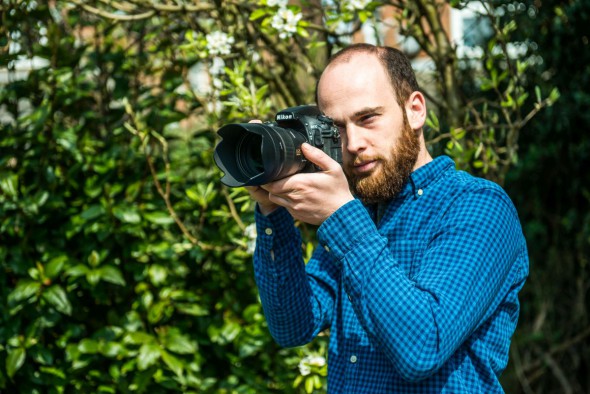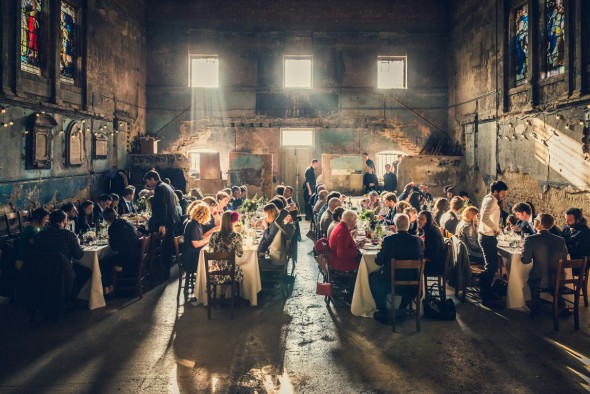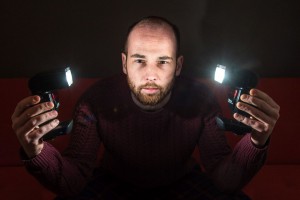Making a living from photography is a dream for many, but do you have what it takes? Ben Davis examines the road to success...

Becoming a professional photographer can be tough. Anyone starting out today will be sure to face lots of daunting obstacles and fierce competition. It takes dedication, determination and a decent slice of luck.
I was fortunate to become a full-time photographer when I did. It was 2006, I’d just finished university, and my fledgling photography hobby was barely six months old. Somehow, I managed to convince the picture editor on my daily local newspaper to give me a job. I loved it and learnt a hell of a lot. Six years later I was made redundant, along with the rest of the photographic department. The same was true for many other newspapers and publications across the country, and those jobs just don’t really exist anymore.
In today’s gig economy, if you want to earn a living from photography you’ll most likely be self-employed. Being freelance offers independence but little financial security, and the lack of a guaranteed regular wages can be daunting. For the more entrepreneurial photographer, it’s a challenge to be relished and an opportunity to make a handsome income with plenty of freedom and rewards.
While to make a success of it you obviously need to be good at taking pictures, you don’t need to be the best, or even particularly brilliant. All right, you do if you want to be earning the big bucks, but there are a lot of rungs on the ladder. As long as you’re good enough that people are happy to pay for your services, and you concentrate on a particular niche, you have a chance of earning a living as a photographer.
Of course you’ll need to invest in equipment. Professional-level gear is expensive but you won’t need everything all at once – I’m still investing, upgrading and expanding my kit ten years in, and probably forever will be. There’s always something on the wish list. But having an expensive and extensive kit bag won’t transform you into a professional photographer; you need to know how to use your camera in any situation, how to combat challenging light and how to cope when things go wrong.
Finding work can be a challenge, especially in the beginning. I was lucky; I had contacts from my time as a press photographer. Former colleagues now working in PR or publishing were happy to hire me because they could trust me to deliver the images they were after, and this made my transition to freelancing relatively easy. It’s not the same for everyone.

An image of Ben’s from his freelance wedding photography business.
Anyone venturing into freelance photography without experience faces the classic job-hunter’s catch-22. How can you get hired for work without experience, and how can you get experience without being offered work? You need to have a portfolio of relevant images you can show to prospective clients, or have built up enough of a positive reputation to be hired. But this is almost impossible to do without job offers.
One way lots of freelancers get started is by offering to work for free. Whether you should ever work for nothing is a question that deeply divides professional photographers. For my part, I’d argue that if you want to get a foot in the door, it may sometimes be necessary in the short term, especially if you’re portfolio-building or want to demonstrate your skill to a desirable client. However, to accept unpaid work from potentially paying clients in exchange for “exposure” or something else similarly meaningless is almost always a mistake, and detrimental to the industry at large.
Most freelance photographers probably spend less than 20% of their working time actually taking pictures. Editing images takes time, but then there are all the other tasks of running a business: accounting, marketing, updating your website, filing tax returns and so on. Anyone wanting to make a living from photography will need a decent head for business. You need to be aware that lots of the job is fairly mundane – it’s not as glamourous as it’s perceived to be.
You need to be proactive and driven. Clients won't just magically fall in your lap – you need to help them find you, which means more than just having a website. You need to get your site on the first page of the results when people search for terms that relate to your business. You need to advertise, promote yourself and pitch to clients you’d like to work with. If you don’t, you’ll struggle.
I sometimes go through periods when the phone doesn’t ring for a week or more. The job offers seem to dry up and I have no idea where the next pay-cheque is coming from. This is the uncertain nature of freelancing. You need to be resilient, able to take droughts and knock-backs without succumbing to anxiety. If you take it too personally, or let it stress you out, then photography might not be the career for you.
I use slow periods to improve my website, build up my marketing, research and pitch to potential clients, or just enjoy a little time off. There’s no holiday pay in this business, and when I’m busy I might be working for weeks on end without a day off.
When I started as a photographer, I had a Samuel Beckett quote pinned to my wall. It read: “Try again. Fail again. Fail better.” It’s imperative to learn from mistakes, as I’m still doing today. You need to be spurred on by failure, rather than defeated by it.
The road to success as a working photographer is long, and differs for every individual. To make a go of it, you need the skills and the style that people want to pay for. You need to be in a position where people are offering you work, whether that’s through networking or marketing. You need a business brain, a positive attitude and a certain toughness to roll with the punches when they come. If you’ve got all this and are prepared to put in the hard graft, then you’ve got what it takes to be a professional photographer.
About the Author

Ben Davis is an award-winning professional photographer with more than 10 years' experience in the industry. His internet home is www.cambridgeshireweddingphotography.com
Related articles
Perspective: Is It Possible to Create Truly Original Photography?
Editorial: Will 4K Video Kill Stills Photography?
Editorial – Do You Know the Answer to One of the Most Important Questions in Photography?

